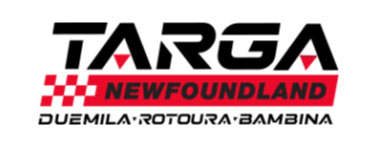Targa Newfoundland, the ultimate tarmac rally in North America, has challenged racers since 2002 and achieved legendary status in the process. Here are answers to some frequently asked questions.
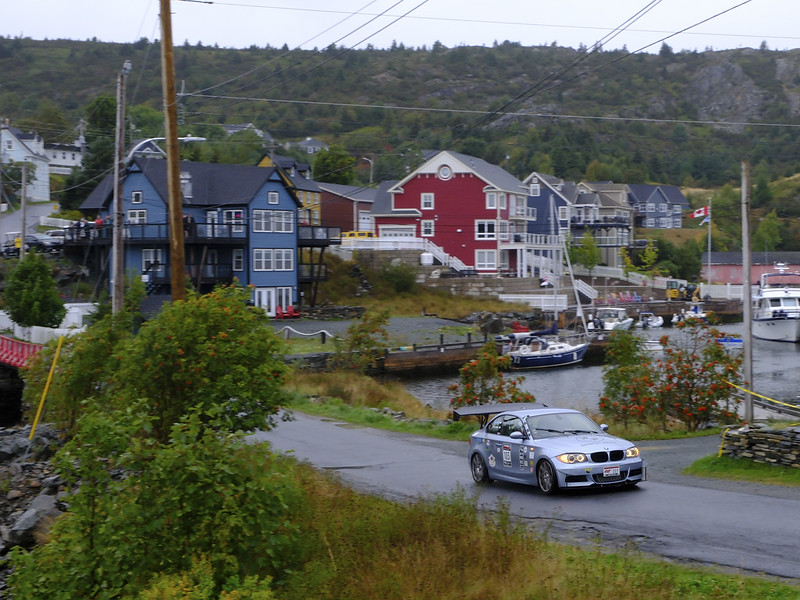
What are the dates for Targa Newfoundland?
The 2025 rally will run September 11-18 including two days for the Course Familiarization Program. The awards gala will be held on September 19.
Future events are set for these dates:
- 2026 – Sept. 10-17
- 2027 – Sept. 16-23
- 2028 – Sept. 14-21
- 2029 – Sept. 13-20
Where is Targa Newfoundland held and how do I get there?
Targa Newfoundland is held each September in the province of Newfoundland and Labrador on the Atlantic coast of Canada. The rally is staged on the island of Newfoundland so the options for getting here are taking the ferry or flying. It’s a big place covering over 900 km (about 560 mi) from the west coast to the east coast. We’ve posted information about Newfoundland and Labrador, our communities, places to stay, and how to get here on the Targa website.
When should I book the ferry?
Marine Atlantic provides ferry service to the island of Newfoundland from Nova Scotia. Reservations are recommended, especially during peak times. If you want a private cabin, you should book well ahead as they fill up quickly.
There is year-round service between North Sydney, Nova Scotia and Port aux Basques, in southwestern Newfoundland. Most days have two sailings – morning and evening – and the crossing takes six to eight hours, depending on weather. The drive from Port aux Basques to St. John’s covers about 902 km and takes about 9.5 hours.
From June to September there is also service between North Sydney, Nova Scotia and Argentia, on the Avalon Peninsula, a 90-minute drive from the capital city of St. John’s. This longer trip, about 15 hours, runs three times a week.
https://www.newfoundlandlabrador.com/getting-here-and-around/car-and-ferry
Marine Atlantic | Ferries to Nova Scotia & Newfoundland

What about booking accommodations?
Though the event is held in the shoulder season, booking early is advised, especially for smaller communities that don’t have as many options. Our stopovers are in St. John’s, Gander, and Clarenville. We’ve provided some links to accommodations or use your favourite search tool.
Where to Stay – Targa Newfoundland (targanfld.com)
What about shipping my car?
If you don’t have the time or inclination to drive your car to Newfoundland, then shipping your car is a great option. We recommend Interlane if you are shipping a vehicle from anywhere in Canada or the United States to St. John’s, Newfoundland and Labrador.
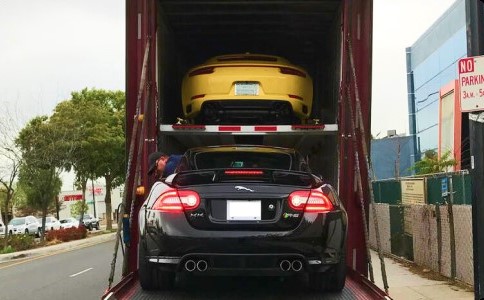
Interlane will give you a quote on any car shipments and will provide exclusive pricing to Targa competitors. Interlane provides a full turnkey service, including customs clearance, door-to-door across Canada and the U.S. Also, since they are a Canadian company, they handle transport coast-to-coast within Canada too.
What are the roads like?
Targa runs on public highways, roads and streets that the people of Newfoundland use every day. They aren’t racetrack smooth but are generally no worse than roads you drive on in any other part of North America, even those in many large cities.
We take great care in selecting roads that will challenge you. The route book will identify any potential hazards. The key is to set up your car for a rally not a race. We recommend a stock ride height to tackle the diverse range of road conditions during Targa. Ensure you have quality shocks with full rebound and good tires. This is a tarmac rally complete with occasional potholes. Your suspension will need to cope with these challenges. Targa Tech Tips – Targa Newfoundland
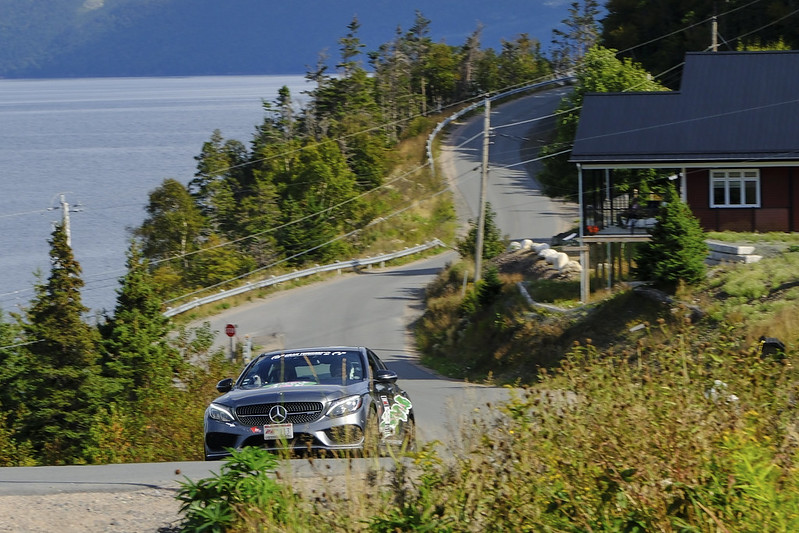
What is the weather like in Newfoundland during Targa?
Weather in September is generally quite pleasant and warm with temperatures often in the teens to twenties Celsius but prepare for cool and rainy conditions too. With its proximity to the wild Atlantic Ocean, Newfoundland weather is best described as variable. As unpredictable as the weather is, the clean, fresh sea air is a welcome constant.
What does Targa mean?
The word “Targa” means “plate” or “crest” in Italian. The original event, the Targa Florio, was run on the island of Sicily. It was special in that the cars did not compete one against the other but competed time against time, starting at intervals. In 1990, the concept was re-developed on the Australian island state of Tasmania and became Targa Tasmania. In 1994, Targa New Zealand followed. Newfoundland is one of the only locations in the Northern Hemisphere which can offer the roads, challenges, and beauty necessary to host this type of event. Targa Newfoundland is one of a kind in North America. It has attracted entrants world-wide from across Canada and the United States and such countries as the United Kingdom, Germany, Holland, Australia, New Zealand, Turkey, and the Caribbean, to name but a few.
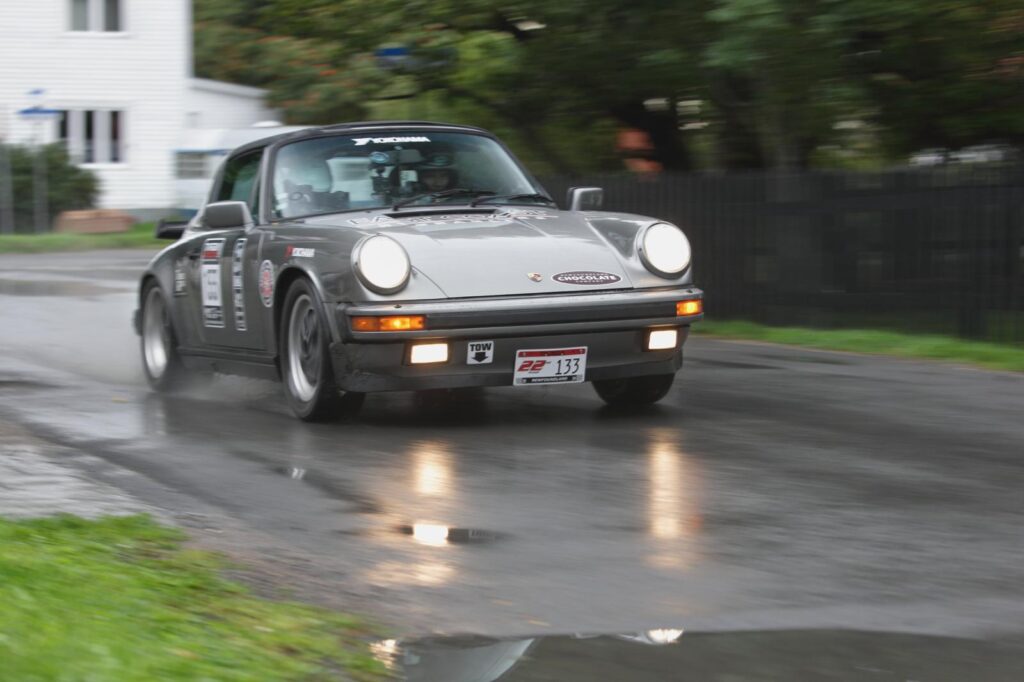
What makes Targa Newfoundland different than other rallies?
Targa Newfoundland is the ultimate tarmac rally – one of only three
internationally recognized targa events in the world and the only one of its kind in North America.
All divisions follow the same route. Targa Duemila is made up of more than 40 scheduled Targa stages where the road is closed to public traffic and where the Targa 1, Targa 2 and Grand Touring division entrants are timed. Stages are linked by transit sections that are not closed to public traffic where all provincial vehicle traffic laws apply.
Targa covers about 2000 km (1240 miles) including about 500 km (310 miles) of closed stages on public roads with approximately 4700 turns. Nowhere else will you get to race on public roads and streets through spectacular scenery, towns and outports at speed; nowhere else will you enjoy the people, the culture and the hospitality of one of North America’s most beautiful destinations – Newfoundland and Labrador.
Do I need a racing license to enter Targa?
Anyone with a valid driver’s license can enter Targa Newfoundland. You don’t need a racing license. If you are new to tarmac rallies, when you enter Targa Newfoundland for the first time, we’ll train you through the Course Familiarization Program (CFP) included in the entry fee. This provides you with a driving skills review, stage review, and practice session before the rally begins.
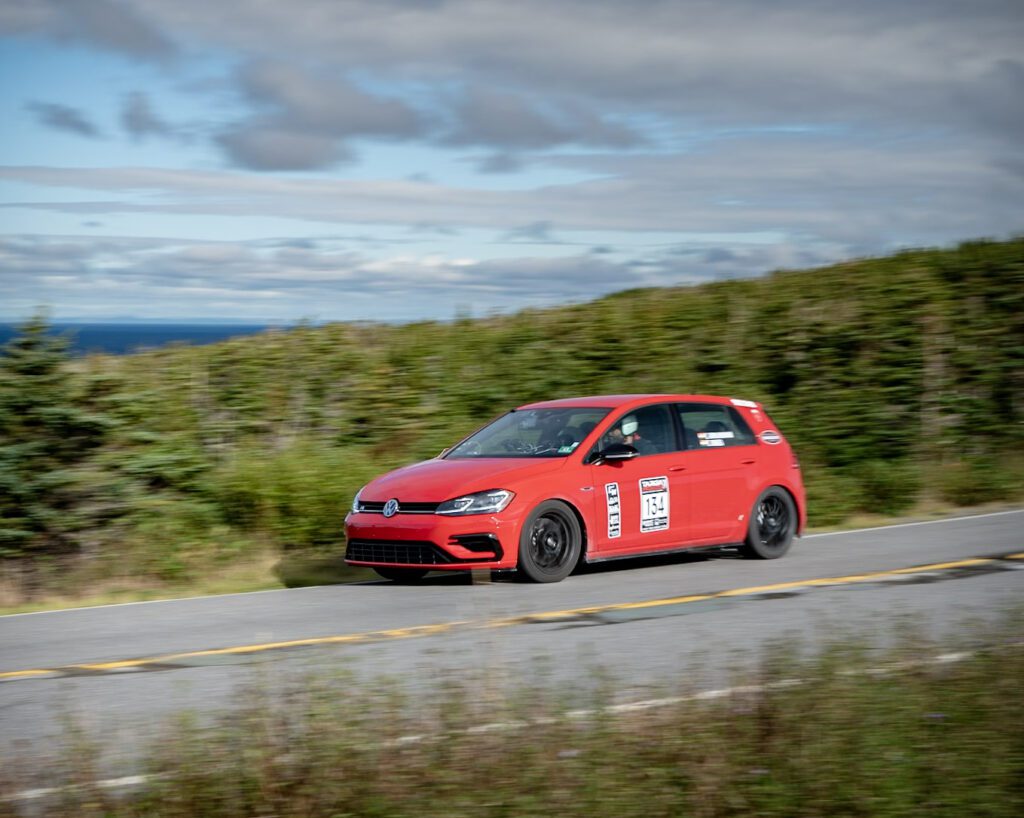
How are cars classified?
There are three competitive divisions – Targa 1, Targa 2, and Grand Touring – and one non-competitive division, Targa Tour. Targa 1 and 2 divisions are further grouped by two-wheel and all-wheel-drive vehicles made before or after the year 2000.
Targa Newfoundland divisions:
Targa Tour (TT) is a non-timed, non-competitive motorsport adventure. It is a tour within Targa that is designed to allow the owners of sports, classic and exotic cars to drive them the way they were built to be driven, within the limits prescribed by the event, but without the stress of competition. Targa Tour covers the same stages as the competitive divisions but the runs are not timed.
Targa 1 is a competitive, timed event for cars with a roll bar. A base time is set for each stage with the goal to beat that time without any penalties. On a Targa stage, you are penalized for being slower than the base time for your class and road condition. No penalty is incurred for traversing a Targa stage in less time than the base time assigned for your class; penalties are assigned for exceeding the maximum average speed in Targa 1.
Targa 2 is a competitive, timed division for vehicles with full roll cages and has the highest speed limits. A base time is set for each stage of the rally. The goal is to beat that time without any penalties. On a Targa stage, you are penalized for being slower than the base time for your class and road condition. No penalty is incurred for traversing a Targa stage in less time than the base time assigned for your class; penalties are assigned for exceeding the maximum average speed in Targa 2.
Grand Touring (GT) is a time, speed and distance (TSD) competition, also known as a navigational rally. The emphasis in the Grand Touring competition is on precision, not outright speed. The goal is to maintain an average speed throughout the stage and to arrive at the finish within an allowed time window. Competitors will be assigned one or more average speed(s) for each Targa stage which they must strive to achieve at all times within an allowed margin of error specified by a single given time window for that stage. Average speeds will be given in kilometres-per-hour to one decimal place (e.g. 37.3 kph) and time windows will be given in whole seconds.
Targa 1 and 2 are broken down into the following groups:
Two-wheel drive (2WD) vehicles built before or after the year 2000 (Classic or Modern)
All-wheel drive (AWD) vehicles built before or after the year 2000 (Classic or Modern)
What are the speeds in each division?
This chart shows the average and top speeds for each division and the safety requirements. Refer to the Rules and Regulations for full details.
| Group | Safety | Average Speed (kph) | Top Speed (kph) | |
| Targa Tour | All | Roll bar required (open, removable roof, removable hard top cars) | 120 | 130 |
| Targa 1 | 2WD (Classic and Modern) | Roll bar required (all) | 130 | 155 |
| AWD (Classic and Modern) | Roll bar required (all) | 130 | 155 | |
| Targa 2 | 2WD (Classic and Modern) | Roll cage (all) | 140 | 180 |
| AWD (Classic and Modern) | Roll cage (all) | 140 | 180 | |
| Grand Touring | All | Roll bar required (all) | 130 | 155 |
What does the co-driver do?
Our registrar and experienced co-driver Wayne Lorenzen has put together a guide to help those new to co-driving, also called navigating. Check out A Beginner’s Guide to Co-Driving.
If you want to go deep into co-driving, read the definitive book on the topic by expert co-driver and long-time Targa Newfoundland steward, Mark A. Williams. His rallying expertise is grounded in more than four decades of stage rally competition across six countries and three manufacturer teams—Subaru, Mitsubishi, and Hyundai. Much of the wisdom gained from that experience is shared in his book, A Guide to Rally Co-driving in North America.
Do I need a high-performance race car?
No, you don’t need a race car to run in Targa. All you need is a street legal vehicle. A basically stock MINI GP won the Targa 1 division in 2023. A stock Mercedes-Benz GLA 45 AMG took the Grand Touring title. Other cars that have raced in Targa include Subaru WRXs, VW GTIs, BMWs, Porsches, Ford Mustangs, Ferraris, Vipers, Lotus, Mazda Miatas, several MINIs and even a bone stock Hyundai Elantra. Some people will modify their cars while others will bring stock vehicles. Targa has seen a wide variety of vehicles including rally cars, sports cars, classics, exotics, muscle cars, hot rods, sedans and even a pickup.
Note that Targa 1 cars require rollover protection and Targa 2, the fastest division, requires a full roll-cage. Open or convertible cars in Targa Tour are required to have a roll bar. Check the rules here: Rules & Regs – Targa Newfoundland (targanfld.com)
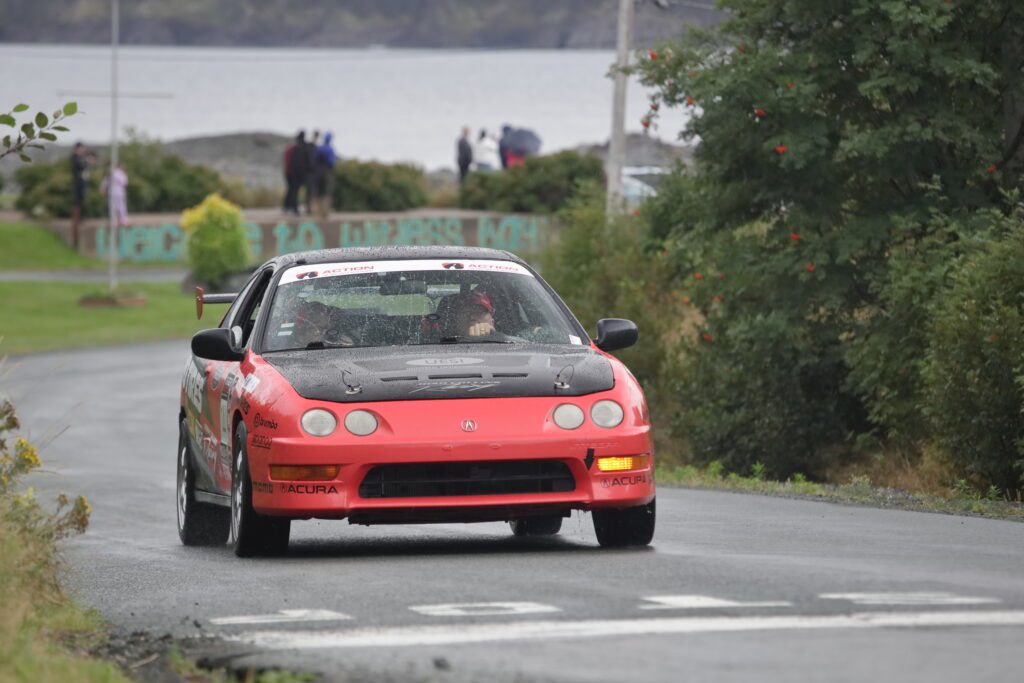
Does Targa provide rental cars for the rally?
Through our Arrive and Drive service, we connect race car owners looking to rent their vehicles with competitors eager to take part in the rally. This service is completely free, designed to help competitors overcome logistical challenges and get behind the wheel at Targa Newfoundland. Please note, Targa Newfoundland provides the connection but does not get involved in the rental transaction or charge a fee for this service.
Arrive and Drive – Targa Newfoundland (targanfld.com)
Is Targa Newfoundland safe?
Targa has a safety record second to none. Safety is our top priority. There have been some crashes over Targa’s lengthy history, but we do everything possible to minimize risk. Targa has worked hard to achieve an enviable safety record and has an extremely low incident record.
The specially created Course Familiarization Program (CFP) is included in the entry fee to prepare drivers and co-drivers. This two-day program covers everything drivers and co-drivers need to know to have a safe and exciting experience.
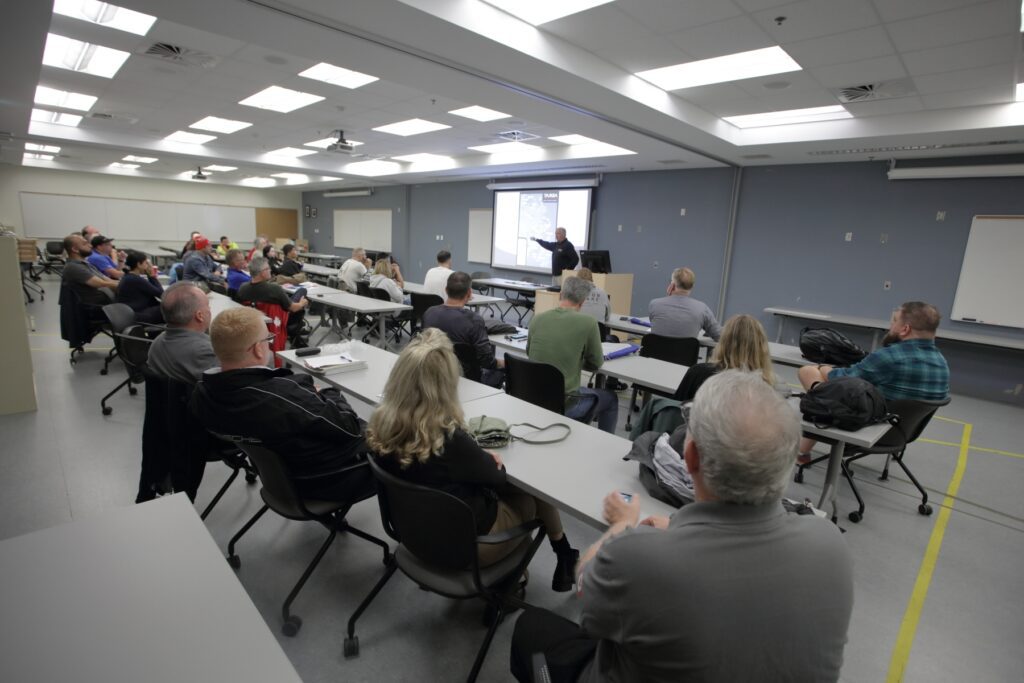
The Course Familiarization Program is specifically designed for this event to teach each member of the team their roles, develop interrelation with each other, hone their teamwork, test their skills, and become comfortable in their car, which will be their home for two days (Bambina), four days (Rotoura) and six days (Duemila). It covers safety, high performance driving, navigating, responsibilities of the teams, etc.
The Targa Driving Skills Review and Practice Session on Day 1 is mandatory for all teams new to the event. Returning teams are welcome but do not have to attend. Day 2 is the Stage Review and First Responders and Competitors Meeting, which is mandatory for all teams. During this full day session, all teams come together to understand the course and the communities they will visit. Each stage is explained in detail, with a focus on their roles and duties as a First Responder team who arrives first at the scene of an incident. They will also be introduced to the event officials, who will brief the participants on start and finish protocols, good sportsmanship, and the Targa behaviour expectations.
We choose the stages carefully and drive them multiple times in advance to identify any issues. We limit the speeds for each division and inspect each car to ensure they are safe. We tape off areas of closed stages to keep spectators at a safe distance and our officials drive the course ahead of the racing to ensure they do. We want everyone involved, including competitors, volunteers, marshals and spectators to have a safe and fun event.
What does it cost to race Targa Newfoundland?
The 2025 entry fee for the full eight-day Duemila rally is $12,000 CAD per team and $8,000 CAD for the six-day Rotoura event. Both include two days of training and practice before the rally begins.
Participating in Targa is not cheap but unique experiences of a lifetime like this rarely come without a cost. It’s in line with similar types of events around the globe. It is comparable to the cost of a season of racing crammed into one week for some people or the entry fee of one weekend of some racing series. Where else can you experience such challenging roads, spectacular scenery, camaraderie, friendly people and unique culture all in one event? It’s an adventure unlike any other.
What is included in the entry fee?
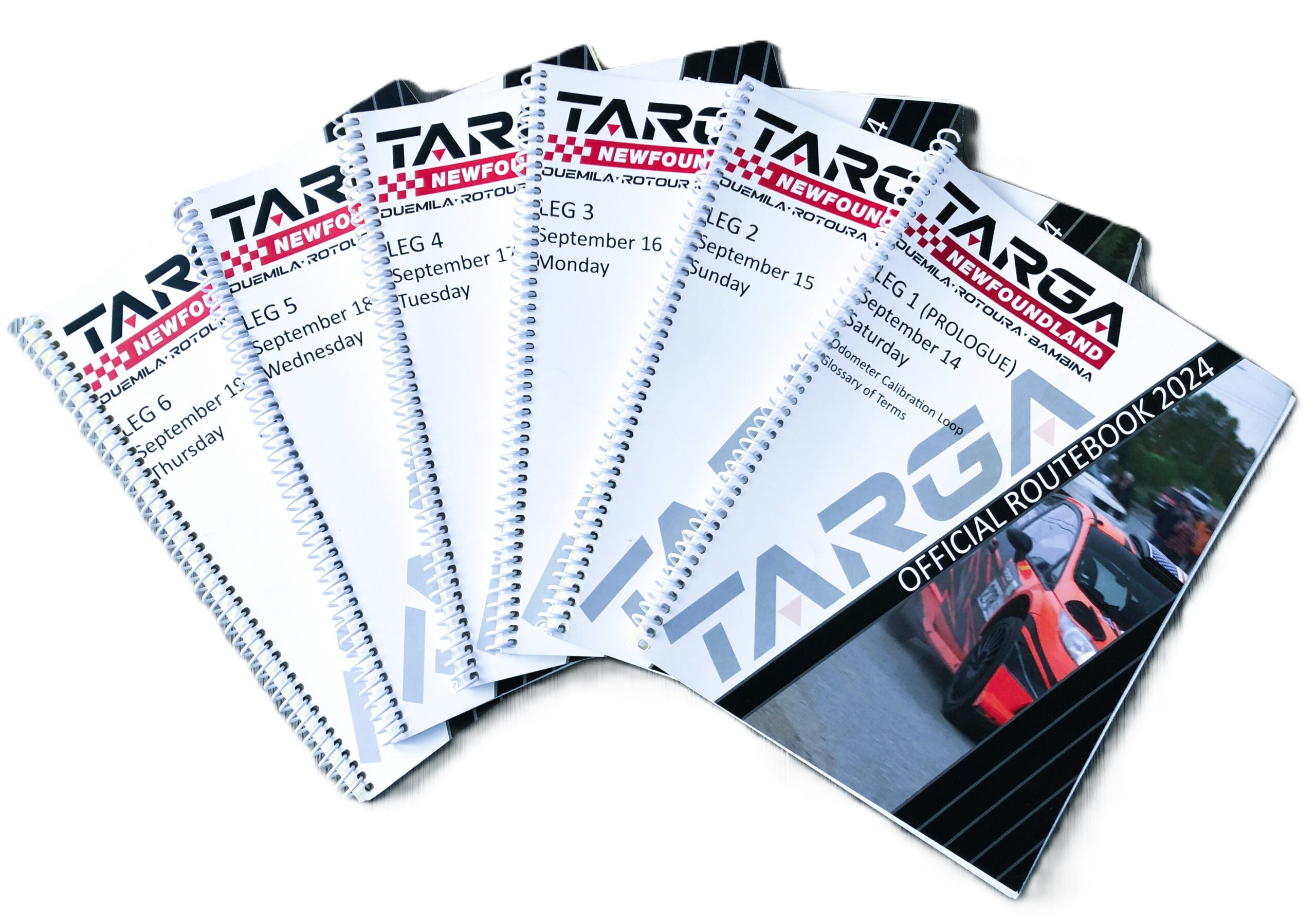
Along with the two-day Course Familiarization Program mentioned above, the entry fee includes the following:
- Route books – Set of six (6) for Duemila and four (4) for Rotoura, provided at the rally.
- Specified lunches and functions for driver and co-driver.
- Event PLPD insurance for closed-road stages (up to $5 million for any single incident).
- Medical coverage (secondary to the competitor’s own insurance).
- Competition decal kit (car number and Targa sponsors) – Note: teams are responsible for driver and co-driver name decals and their own sponsor decals.
- Targa hat, Targa jacket and Targa T-shirt (Duemila and Rotoura drivers and co-drivers)
The entry covers the event operating costs: course design, set-up, travel and accommodations for the volunteers, equipment, competitor insurance, as well as meeting with and supporting the approximately 20 host communities that participate in each event.
The competitor is responsible for travel to the event, hotel and evening meals for the team as well as transportation of the competing vehicle and the fuel it requires.

Targa Newfoundland offers a driving experience like no other. Don’t just take our word for it – join the privileged few who have already experienced the rush and make your mark on the road. It’s time to unleash your inner adventurer with Targa Newfoundland.
